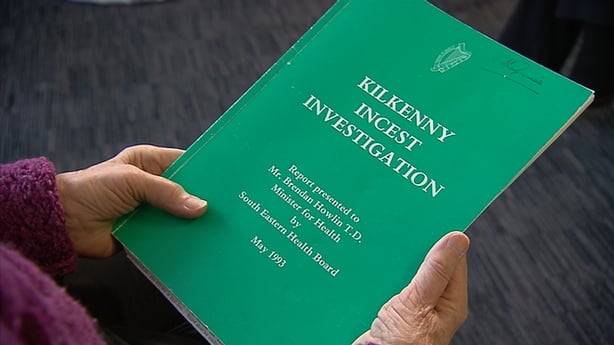A retired Supreme Court judge, who led a major investigation into the Kilkenny Incest case in the 1990s, has said child protection services have been continually under resourced.
Speaking ahead of the publication next week of the terms of reference for an Commission of Investigation into a foster home in the southeast at the centre of abuse allegations, Catherine McGuinness said there has never been a complete commitment in following through on what needs to be done.
The Government is set to launch an official inquiry into the foster home where 47 children were placed over two decades up to 2013.
One of the children was 'Grace' - a young woman with profound intellectual disabilities who was left in the home for almost 20 years, despite a succession of sexual abuse allegations.
Speaking on RTÉ's Morning Ireland, Justice McGuinness advised those setting the terms of reference to look at accountability on two levels: what actually happened and how the situation was managed.
This should not be a witch hunt for one social worker to blame, she said, but rather a look at the case in its entirety.
Justice McGuinness led a major investigation in 1993 into child sexual abuse and the failure of authorities to act in the Kilkenny Incest case.
There were over 100 contacts between the victim and the health services but the system failed to protect her from or respond adequately to the horrific abuse she suffered.

Her report led to a significant changes in the area of child care law, but Justice McGuinness said she is unsure as to why all the repeated recommendations, made over several years, have not been put in place.
She said we are a country that is inclined to "wring its hands in horror" in response to terrible events but then put the events to the back of our minds.
When the child and family functions of the health service were separated into an independent entity Tusla in 2014, Justice McGuinness said the medical needs of children continued to be looked after by HSE.
Consequently, the two agencies are not joined-up, resulting in a situation that costs a lot of money and causes delays in court, she added.
There have been other reports of "terrifying cases" since 1993, she said.
She also said that there were 700 high priority cases awaiting allocation to a social worker in November because of a lack of resources, adding that young social workers are getting burnt-out and leaving the system.
We need your consent to load this rte-player contentWe use rte-player to manage extra content that can set cookies on your device and collect data about your activity. Please review their details and accept them to load the content.Manage Preferences

